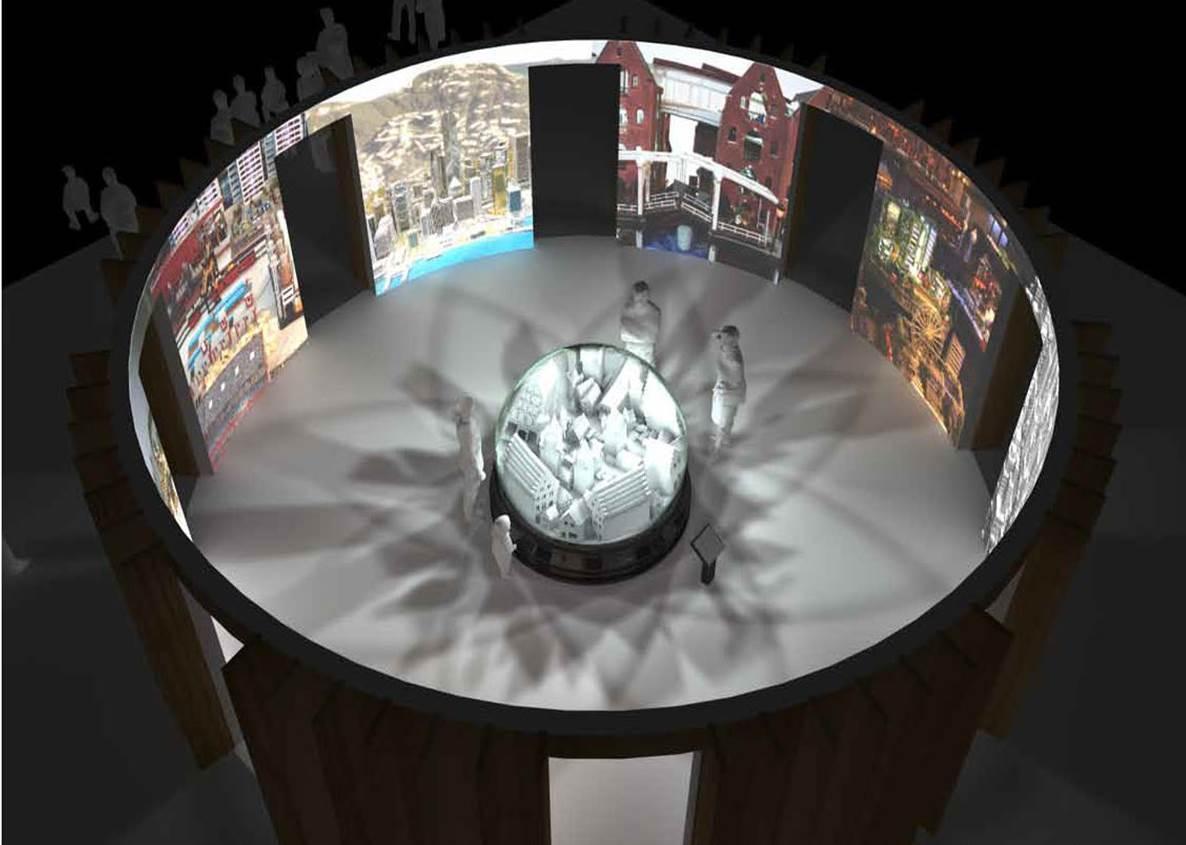The Snow Globe –
8 x Frankfurt
Eight artists created models of these characteristics typical of Frankfurt. Get a first impression in the trailer on YouTube.
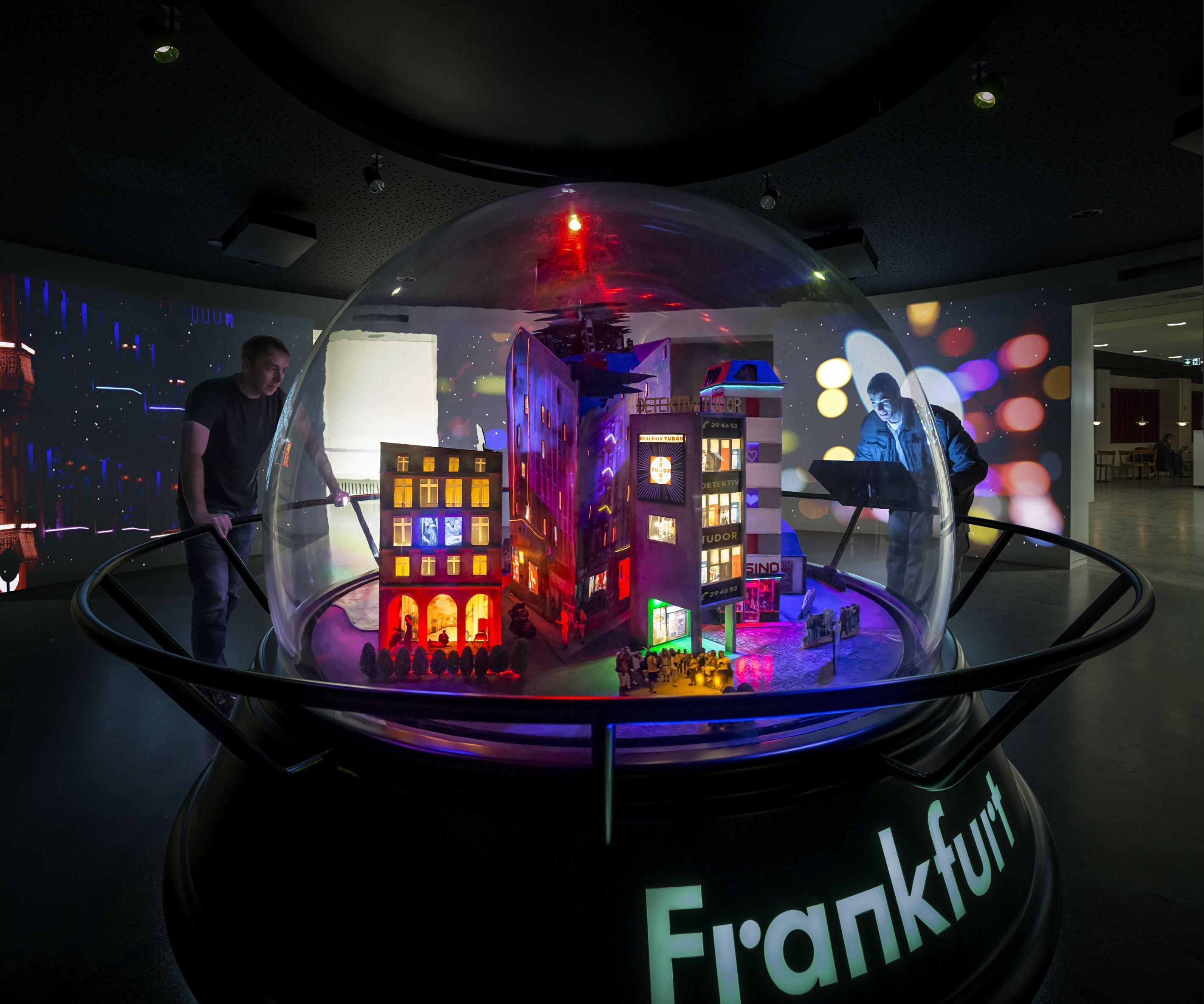
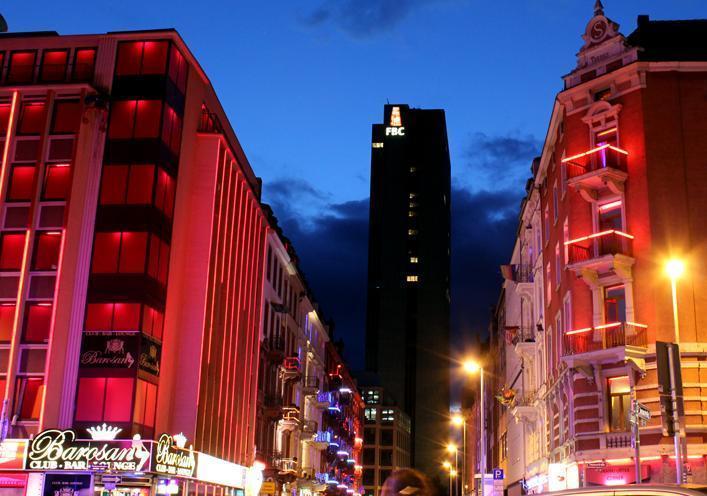


Frankfurt = The capital of crime?!
Almost every year, Frankfurt is at the top of nationwide crime statistics. Does Frankfurt deserve this image? US-American artist Tracey Snelling interprets the cliché of the criminal city. She questions what is meant by "criminal" and why Frankfurt has this image.
Many associate Frankfurt with a cold, calculating and profithungry city with a notorious red-light district, tough drug scene and corrupt bankers. However, Frankfurt's top position in the crime statistics is mainly due to its status as an international hub: Between the central station and airport, there are far more people moving about in Frankfurt on a daily basis than actually live here. The crime statistics include everyone, including communters and travellers. Fare evasion is one of the most frequent "crimes" committed in Frankfurt.

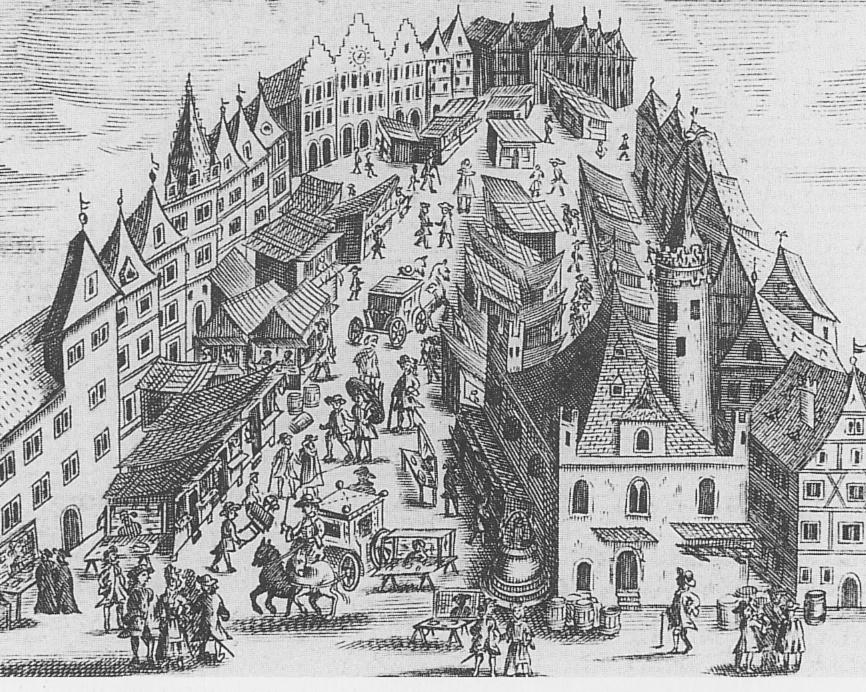


Frankfurt = Bankfurt?!
Many companies from the financial sector are located in Frankfurt. They are the reason for the city to be the leading financial centre of Germany. A visible sign of this are the bank towers, for which Frankfurt has received the epithet "Mainhattan". They inspired Jakob Michael Birn to create a model in reference to the Tower of Babel, the symbol of human hubris.
Since the Middle Ages, Frankfurt has been an important centre for exhibition and trade. The city benefited from its central location and its importance as an election and coronation city of the German kings. In 1240 and 1330, Frankfurt received imperial trade fair privileges, which promoted trade and thus the money and credit economy. Merchants from the great trading centres in Europe met at the autumn and spring fairs; all paying in their own currencies. Initiated by foreign merchants, for the first time fixed exchange rates were agreed upon in 1585 – the stock exchange was founded!

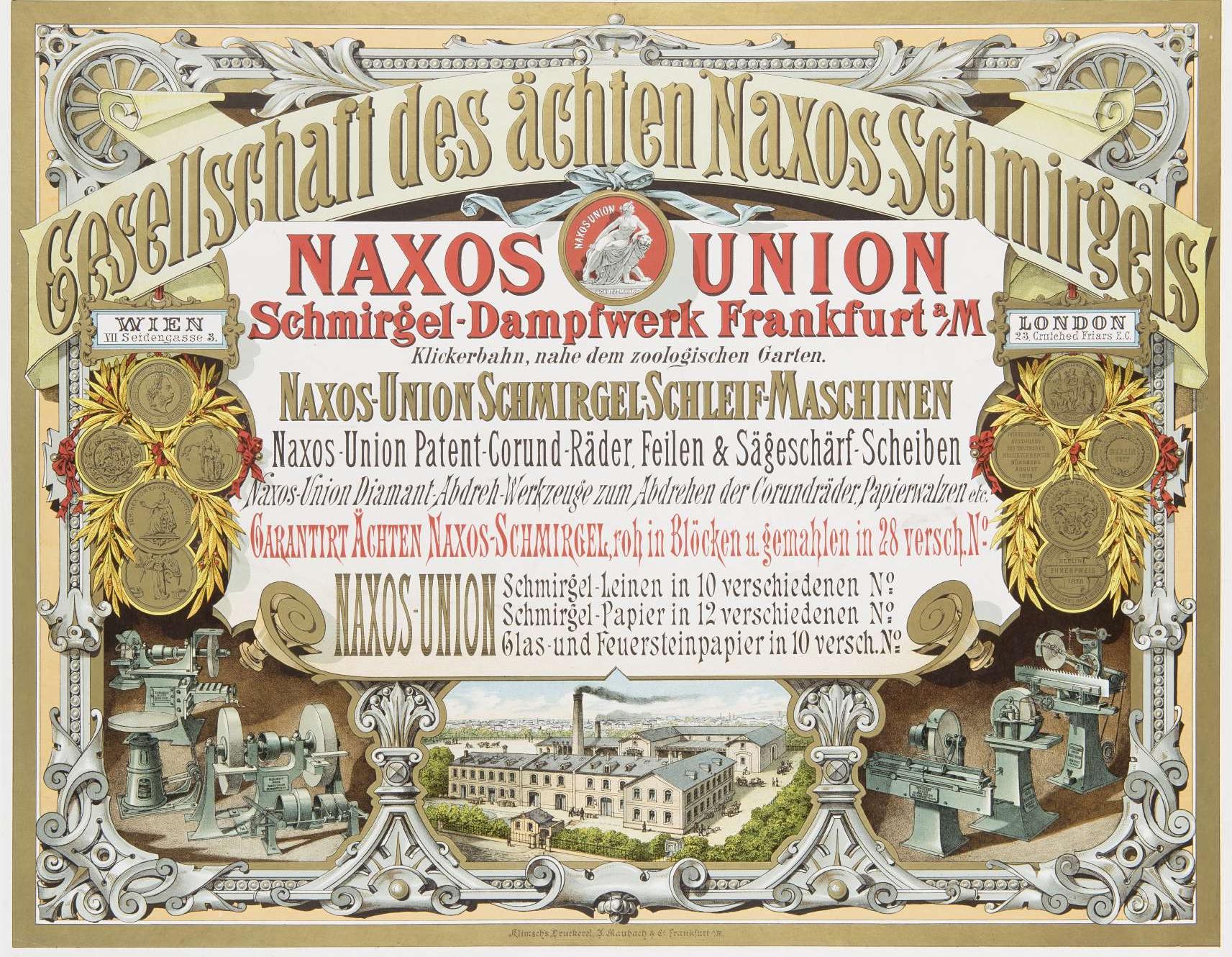


Frankfurt = Industrial City?!
Frankfurt presents itself as the city of banks and services. However, the industry plays a much bigger role when it comes to the income of the city! Frankfurt is still manufacturing today, but as these locations are spread across the entire city, they are hardly noticeable. With his model, Rob Voerman creates a condensed portrayal of the places, products and people of industrial Frankfurt.
Frankfurt's trademark is the comibination of different industries. They city's path to industrialisation first began in the 1870s. By this time, the infrastructure was already well-developed, the roads were well-established and Frankfurt was able to enter at a high level straight away. The new municipal building regulations introduced in 1884 now allowed "troublesome factories" to be built within city limits. To this day, many red brick buldings on the edges of the city centre still bear witness to Frankfurt's industrial past. And even Frankfurt's first high-rise – built in 1926 – did not belong to a bank either, but to the Mouson company, which produced perfume.
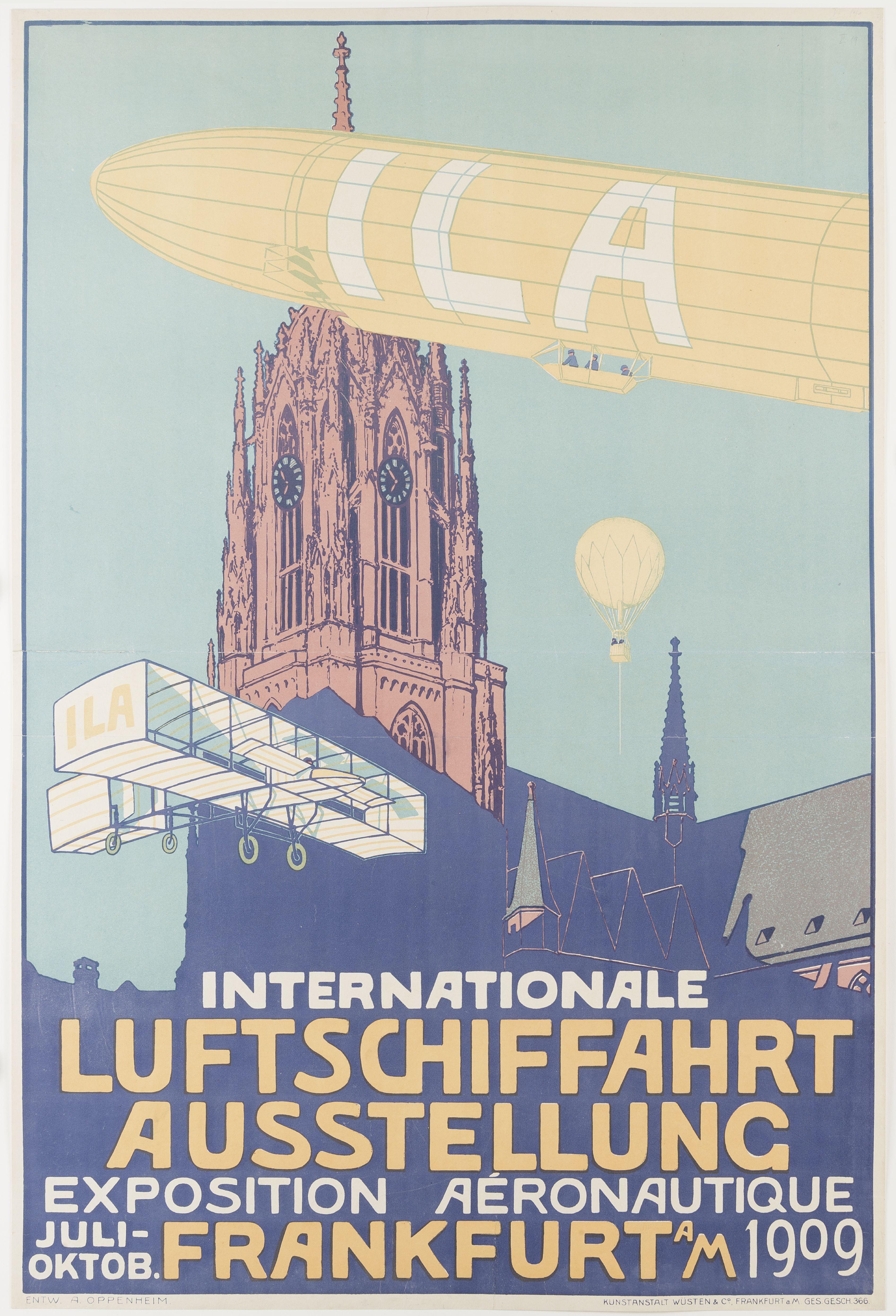
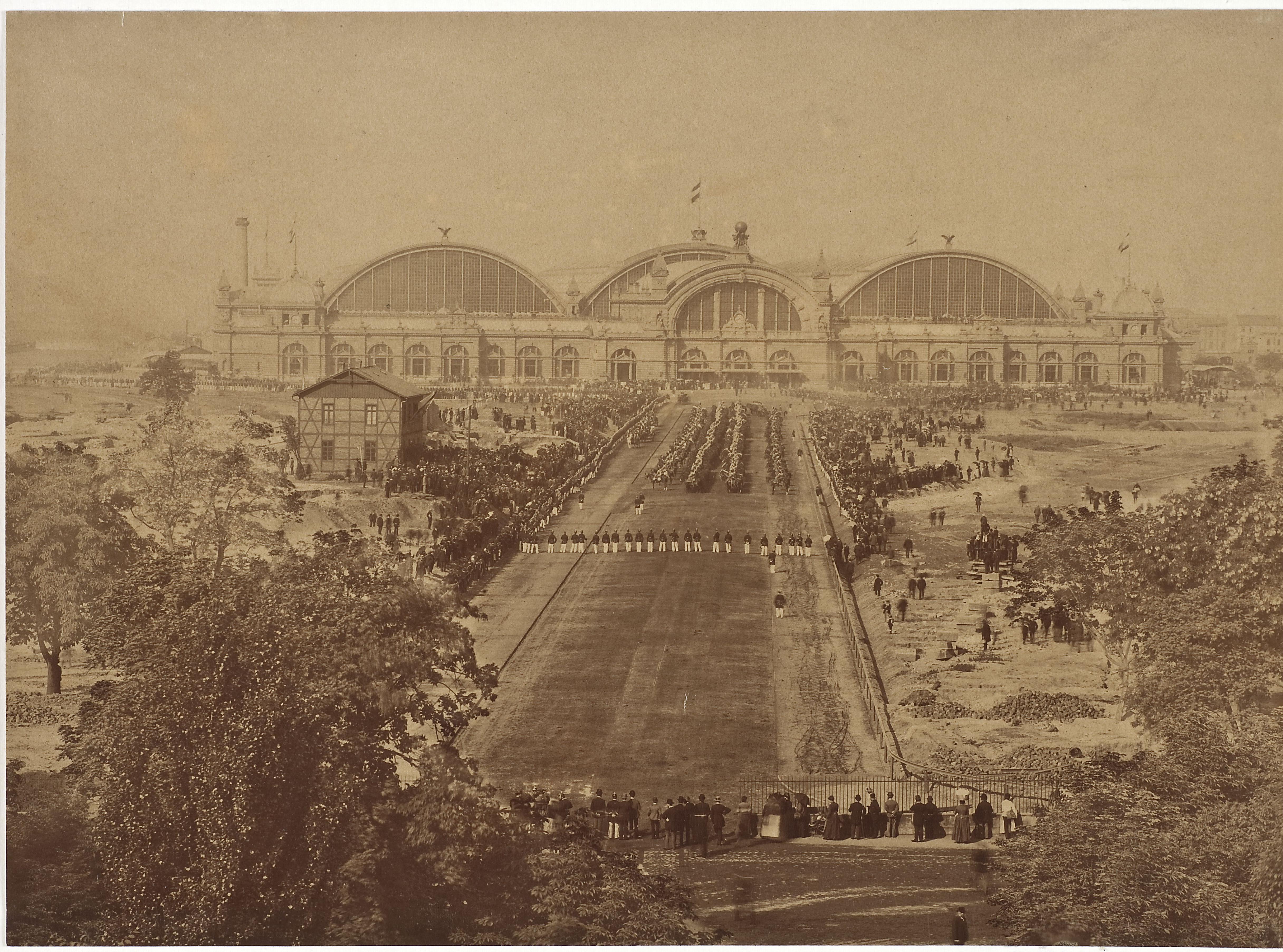


Frankfurt = a hub?!
Many paths have always led through Frankfurt. Frankfurt has made a name for itself as an important hub for air, road and rail traffic. Its geographical location in the heart of Europe also made it a centre for economy and trade. In his model, Edwin Zwakman visualises they city as a hub and junction for people, goods, capital and data.
The traffic hub even plays a significant role in the legend of the founding of Frankfurt: During the flight from the Saxons, Charlemagne of Francia encountered the River Main. A white hin corssing the river with her calf at a ford, indicated Charlemagne and his entourage the way to the other, safe bank. The hind probably never existed, but the ford did – it gave the settlement dating back to around 794 its name. Thanks to imperial privileges and its position as a city independent from the empire, Frankfurt developed into an important trade and fair city as early as the Middle Ages. People from all over the world came here on a daily basis. Even today, Frankfurt is still a city of commuters, who turn Frankfurt into a city of over a million people every morning.
Frankfurt = the secret capital?!
Since the Middle Ages, Frankfurt has been a political centre in Germany – even if it was never a "capital city" in the sense of the constitution. Marc Giai-Miniet shows the history and facets of the "secret capital" in his model.
After the Second World War, Frankfurt almost became the capital of the new Federal Republic of Germany. Even if Frankfurt was never a real capital, it has carried out the functions of a capital city since the beginning of its history: The East Francia of the Carolingians in the 9th century had its centre here and, since the 12th century, the kings and emperors of the Holy Roman Empire of ther German nation were elected and sometimes also crowned here. The German Confederation met here between 1816 and 1866 and thus made Frankfurt a capital city in the sense of the constitution. The first German National Assembly in 1848/49 came together in the St Paul's Church Frankfurt. Frankfurt was supposed to become the capital of a new German Empire, but this never came to pass.
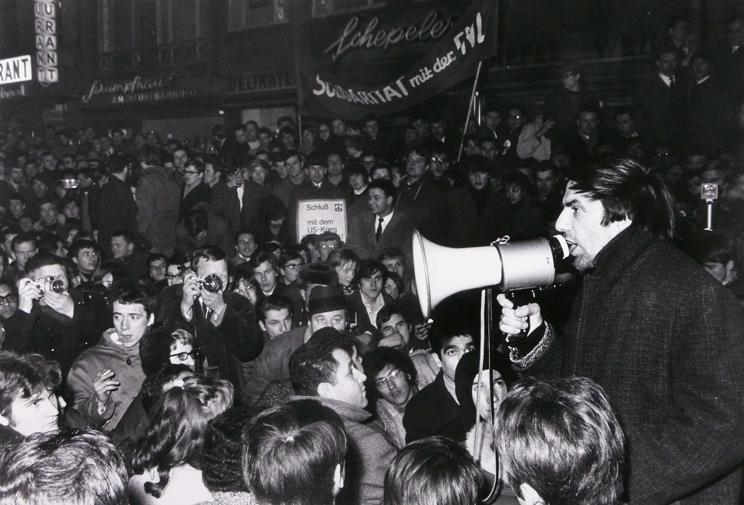
Frankfurt = a critical city?!
Frankfurt is considered a city of obstinancy, protest and criticism. Without the printed word, the critical mind would not have come far. In his model, Florian Göttke presents the unwavering connection between word and criticism over the centuries.
Frankfurt has been one of the centres from which letterpress printing spread since its invention around 1540 by Johannes Gutenberg. He spent several years in Frankfurt working on his ground-breaking, world-changing discovery. The first copies of his famous bible were sold at the Frankfurt fair. Since the 15th century, there has been a book fair in Frankfurt; today, the Frankfurt Book Fair is one of the most important gatherings in the book industry.
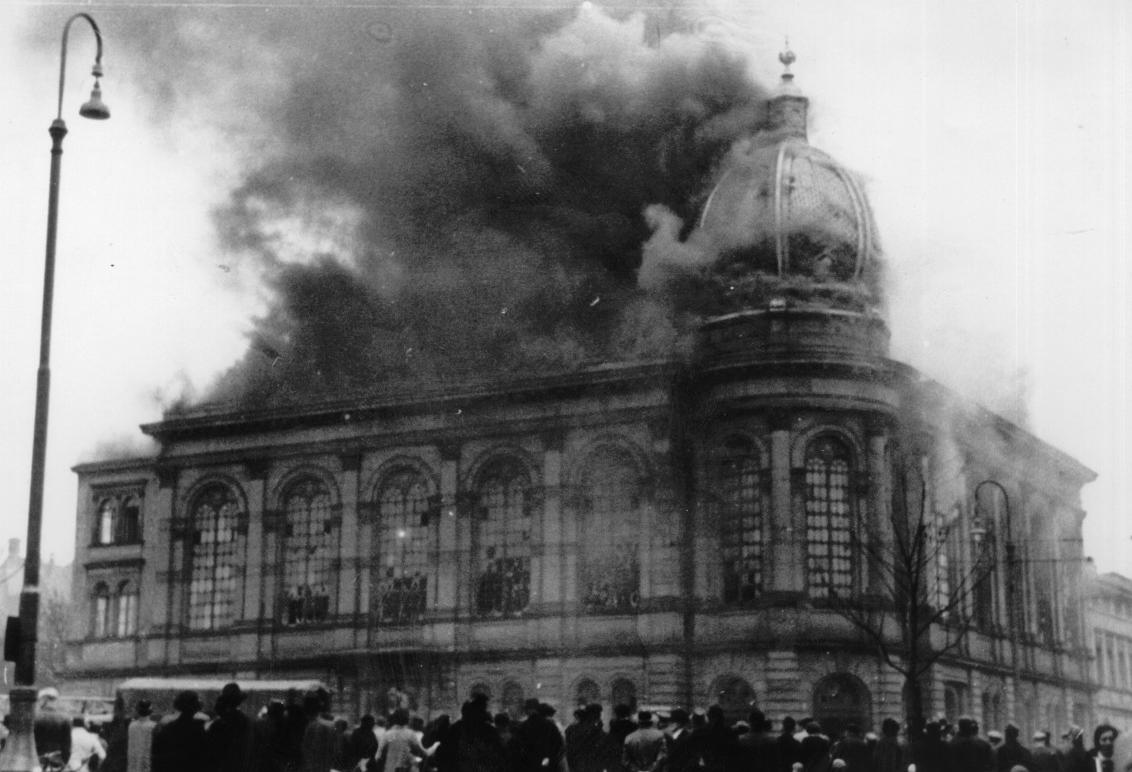
Frankfurt = a Jewish city?!
Frankfurt has had an unbroken Jewish tradition for almost nine centuries – longer than in any other German city. The Frankfurt Jewish community was and still is one of the largest in Germany. In Stephan Mörsch's model, important places and moments of Jewish life in Frankfurt are captured.
In 1462, the creation of the Judengasse ("Jew's Alley") resulted in the first ghetto in Europe. For four centuries, it was the only place in Frankfurt where Jews were permitted to live. Although established as a compulsory measure, a Jewish community developed here like no other in terms of size during the Early Modern Period. Many well-known Jewish families, such as the Rothschilds and the Franks originally lived here, as well as famous rabbis, who made Frankfurt a centre of Jewish scholarship as the "mother of all communities".
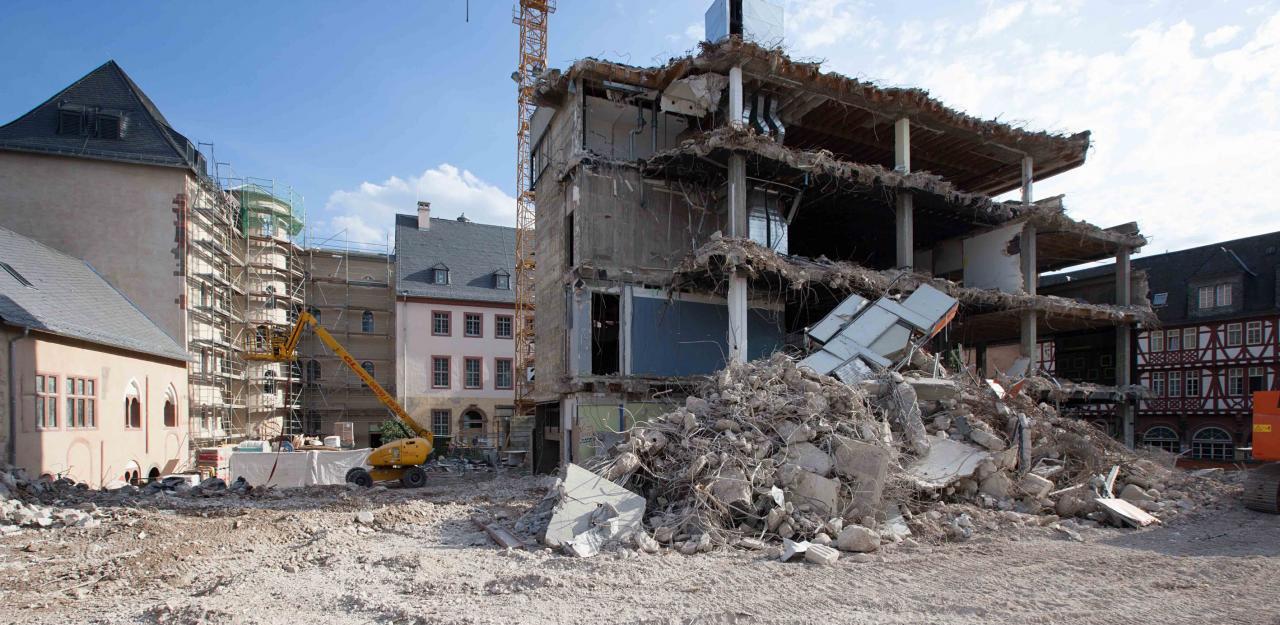
Frankfurt = the eternal building site?!
In no other city German city has there been a construction activity comparable to that in Frankfurt since the destruction of the Second World War. Daniel Verkerk's model shows the city in perpetual restoration.
The cityscape of Frankfurt is characterised by constant modification: There are always several concurrent large-scale construction sites with towering cranes, both in the heart of the city and on the periphery. The cityscape is primarily characterised by cranes. Older buildings stand as islands in the urban space – only fragments from earlier eras have survived. Repeatedly, there are always large new construction projects to reconstruct historical buildings in Frankfurt, such as the "new Old Town", which has developed around the cathedral.

